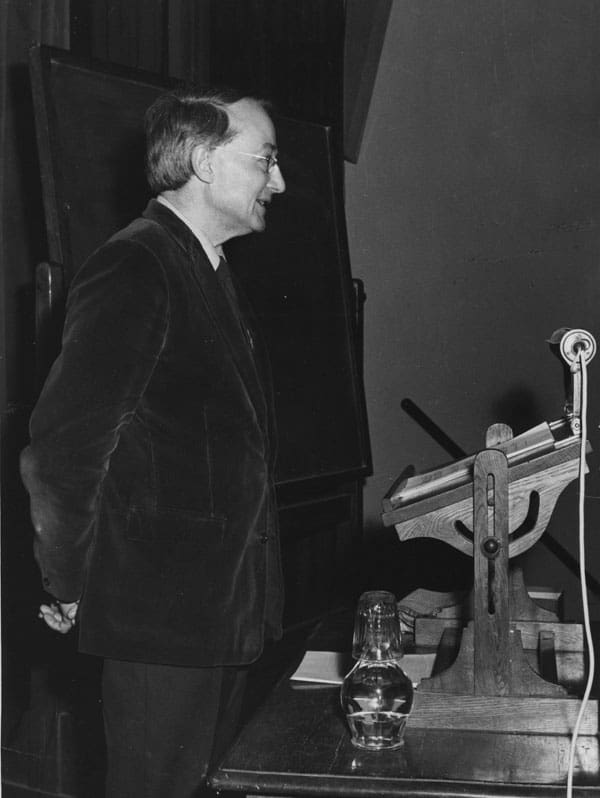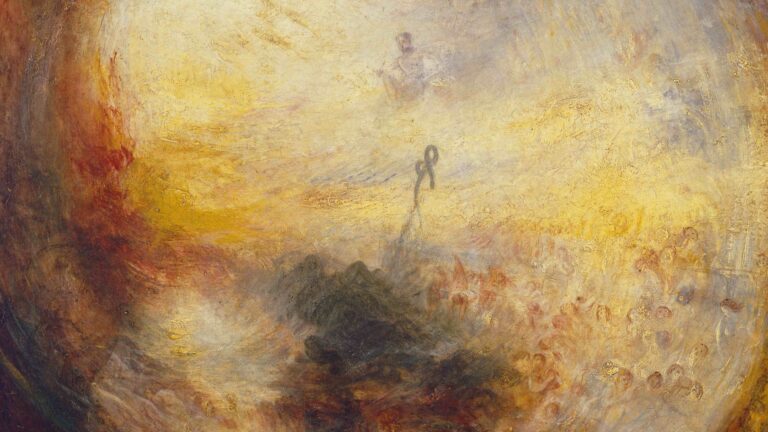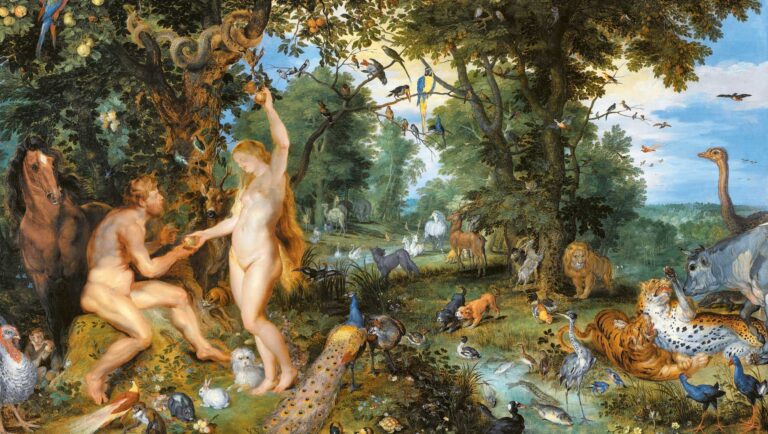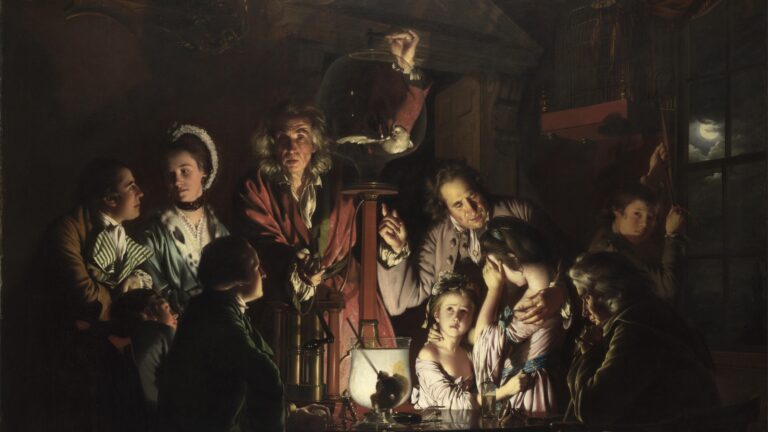This article was published in Vol. 3 No. 4 of our print edition.
There is no end to attempts that try to cram authors into particular political or ideological pigeonholes. Since the dead have fewer means of defending themselves against such kidnapping attempts, after their death everyone considers them their own. There are typically two problems with this. First of all, authors rich in ideas are difficult to fit into current political debates or struggles. Therefore, violence will necessarily be done to such unfortunate authors when attempts are made to appropriate their work. It is likewise a problem, however, when we see efforts to erase the actual convictions and biases of a given author, so that he or she can be adapted to fit the mores of the current canon.
Something similar may have happened to Michael Oakeshott (1901–1990). It is true that he was a philosopher, not a politician, and did not directly participate in party-political battles. Nonetheless, he still lived in a specific place at a specific time, had convictions and opinions, and took part in debates. During his lifetime, there was no question that Oakeshott was a Tory, and that the targets of his criticism were the doctrinaire liberals of his time, in addition to various collectivist enterprises.
After his death, the academic sphere sought to adapt Oakeshott’s oeuvre to fit its own worldview. His alleged ‘liberalism’ is usually justified in terms of four main elements of his thinking1: 1) his scepticism, 2) his individualism, 3) his concept of the rule of law and civil association, and 4) his metaphor of conversation. But a closer examination of these reveals that they do not justify an interpretation of Oakeshott’s beliefs as liberal, while in addition, by focusing only on these, they ignore other no less important elements of his thinking. It is true that the issue of individual freedom was important to Oakeshott, which perhaps puts him in a minority among conservatives, but this does not in itself make him a liberal. His reservations about liberalism were largely implicit, but at certain times, he also made them explicit.
I. The first question is, obviously, what is liberalism? Can we consider as a unified ideology what was once married to nationalism and then had an affair with socialism and other left-wing ideologies? Is liberalism the sole property of certain political parties, or can we characterize an entire era by its dominance? In (post-)postmodernism, indefinable diversity seems natural, but liberalism was born of an age that still sought uniformity and clarity of thought. Liberalism was born during the ‘Age of Reason’, and thus bears its marks.
‘Oakeshott connected individuality both historically and logically with the condition of a strong central government’
Before the term ‘liberal’ became ideological, it referred to much more general, non-political characteristics: open-mindedness, generosity, and the like. It gained political importance in the nineteenth century, with a conception characteristically modern; indeed, it may even be said that liberalism is the modern ideology par excellence; conservative thinking naturally contains anti-modern elements, but this can even be said of the socialist response to liberalism. Liberalism, however, marked the triumphant beginnings of modernity, which aimed to create a political morality called ‘the conception of rational choice as the generator of political order’. Looking back from the vantage point of the present, it may appear as though there are many kinds of liberalism, but in fact, ‘Liberalism constitutes a single tradition’,2 so it is unified—but on what basis?
Firstly, liberalism is fundamentally individualistic, and so always gives priority to the individual over the community. Secondly, liberalism is always egalitarian.3 Thirdly, liberalism is always universalist, ‘affirming the moral unity of the human species and according to a secondary importance to specific historical associations and cultural forms’. Finally, liberalism is meliorist, meaning that it believes that social and political institutions can be improved and perfected.4
The intention of liberalism was therefore to create a universal political order based on reason, in which the principle of equal freedom would prevail, which, expressed in rights, is seen as belonging to all people as people. Liberals therefore always postulate some theory of natural rights, and, in their understanding, these rights already predate the establishment of any particular government, or indeed the very existence of government as a concept. These natural rights define the limits and responsibilities of government. Since natural rights do not originate with the government, they cannot be violated by the government without it becoming illegitimate, thereby empowering citizens to invoke these rights against the government.
There are authors about whom debates still rage as to whether they represented liberalism, but some are agreed upon. One such thinker is John Locke, who laid down the principles of liberal constitutional government in his Second Treatise of Government (1690). Others include Immanuel Kant, who outlined the ideal of the autonomous, rational agent (and who was strongly influenced by Jean-Jacques Rousseau in this regard); and John Stuart Mill, according to whom it is morally inadmissible for others to interfere in individual decisions, since individuals know best what is good for them. It is customary at this point to cite the common and well-loved maxim of liberalism, according to which I am free to do anything that does not infringe upon the same freedom of others.5
II. In my interpretation, Oakeshott is more sharply opposed to ideological thinking than the majority of conservative thinkers: the umbrella term ‘rationalism’ seems broader than that covered by the concept of ‘ideology’. This is indicated by the fact that even Hayek is seen as a representative of the rationalist style, despite the fact that Hayek criticized planning,6 and also by how Oakeshott interpreted the conservative attitude: ‘it is not at all inconsistent to be conservative in respect of government and radical in respect of almost every other activity. And, in my opinion, there is more to be learned about this disposition from Montaigne, Pascal, Hobbes and Hume than from Burke or Bentham.’7
Oakeshott’s scepticism is not suspicious of best practices, traditions, and religious customs; on the contrary, he values them as bulwarks against rationalist constructions and schemes for utopian political arrangements. Scepticism is both epistemological and political in nature: just as it is impossible to acquire certain demonstrative knowledge by completely emptying consciousness, it is also impossible to create a political order ex nihilo.
Of course, Oakeshott was not ab ovo an enemy of abstractions. After all, he was an idealist: we grasp reality through ideas. (He himself lived with and employed such abstractions, like the theoretical extremes of ‘politics of faith’ and ‘politics of scepticism’ and the categories of universitas and societas, civil society and enterprise society.) However, according to his interpretation, ideas and abstractions are the consequences of practice, not the other way around. Abstractions are tools of understanding, not sources of action. Praxis precedes reflection. Liberalism, by contrast, seeks to realize abstractions and ideas in practice.
Practice precedes abstraction, but this does not prevent us from knowing principles. These principles, however, do not come from nothing, or recta ratio, but are rather distillations or condensations of practice: ‘It is, of course, not impossible to formulate certain principles which may seem to give precise definition to the kind of question a particular activity is concerned with: but such principles are derived from the activity and not the activity from the principles’. In fact, ‘[a]ll actual conduct, all specific activity springs up within an already existing idiom of activity’.8 ‘The pedigree of every political ideology shows it to be the creature, not of premeditation in advance of political activity, but of meditation upon a manner of politics. In short, political activity comes first and a political ideology follows after’.9
The ‘extracts’ articulate the universal demands of human freedom, just as the principles extracted by Locke appeared as ‘natural rights’ in the thinking of the American founders. Actual rights, on the other hand, can only exist in a specific time and place, as they are created by specific historical developments, and cannot be separated from them. Oakeshott’s perception is particularistic: knowledge—especially political and practical knowledge—exists within specific traditions, and is therefore necessarily a creation of local human intellect, which cannot be universalized or exported.10
‘Human freedom’ in general does not exist, because the desire for it is not formulated prior to the existence of man or the given political order. Without knowledge of an existing political practice, freedom cannot be grasped as an idea out of thin air—not because it is not desirable, but because it is simply impossible: ‘But the “freedom” which can be pursued is not an independently premeditated “ideal” or a dream…Freedom…is not a “human right” to be deduced from some speculative concept of human nature…And the freedom which we wish to enjoy is not an “ideal” which we premeditate independently of our political experience, it is what is already intimated in that experience.’11
There is also a perception that today’s conservatives defend yesterday’s liberalism. But this forgets that yesterday also had conservatives, and they criticized yesterday’s liberals on very similar grounds. If we look at the writings of Burke, but also of de Maistre and others, they too criticized the liberals of their day for their dogmatism, their striving for a universal and rational foundation of political arrangements, as do conservatives of our times. On the whole, the opposition between liberal universalism and conservative particularism has been constant since the appearance of these labels, and this has been changed substantially only by the neoconservative trend, which adopted the liberals’ demands for universal and natural political rights.

III. It is true that Oakeshott—in contrast to the majority of conservatives—was strongly individualist and a defender of individual freedom (and to that extent does not fit the communitarian trend either); but his individualism is inseparable from his decisionism and emphasis on authority, and also from the fact that his individualism is based on scepticism, rather than on the radical notion of the self-confident individual who places his or her own knowledge above all others.
Oakeshott connected individuality both historically and logically with the condition of a strong central government. Individuality could only be freed from the pressure of all other communities (guilds, churches, etc.) through a central authority. A definitely strong government is needed, ‘without which the aspirations of individuality could not be realized’.12 In other words, order is a prerequisite for freedom. Within the framework of the order guaranteed by the sovereign, individuals are free to pursue their own substantive goals. Civil association approves a wide range of activities,13 but the condition for this is that individuals accept the existence of a sovereign power and that this sovereignty is unconditional and cannot be called into question.
‘Authority is clearly a command, not a statement of principles derived from reason or the laws of nature’
For Oakeshott, authority is clearly a command, not a statement of principles derived from reason or the laws of nature. The laws owe their authority to the well-known and recognized nature of the office of the legislator. This understanding is opposed to that whereby ‘ruling may be properly identified with the exercise of legitimate power only where there is a lingering belief that the obligations thus enforced do not derive from the authority of the office of rule but from God or Nature. This is the fanciful doctrine of the Declaration of Independence, in which governments are said to exist merely to secure rights that they have not themselves the authority to prescribe, and where the “consent” of subjects can legitimize nothing more than the apparatus of power which is necessary to provide that security’.14
Oakeshott specifically wanted to protect the concept of the rule of law from liberal ideas of natural law that sought to attach the legitimacy of law to reason or any other external source. Moreover, according to Oakeshott, individual freedom specifically necessitates protection against reason: ‘And we have already seen that law as the command of the Sovereign holds within itself a freedom absent from law as Reason or custom: it is Reason, not Authority, that is destructive of individuality. And, of course, the silence of the law is a further freedom: when the law does not speak the individual is sovereign over himself.’15 The arguments of reason are compelling, but authority demands only obedience, not agreement or consensus.
In the liberal canon, reason is typically a tool of liberation, while authority is a tool of oppression. Oakeshott says the opposite. Rationalism does not liberate people, but narrows and limits the freedom inherent in human action.16 While liberals specifically base political order on reason, according to Oakeshott, ‘lex cannot be deduced from the so-called dictates of Reason’.17 Choices and decisions can never be justified ‘rationally’, but always contains arbitrariness (arbitration).
The authority of the law is independent of its content: their approval or disapproval does not invalidate them, nor do they require the consent of the governed. In Oakeshott’s thinking, the rule of law and legitimate authority are not connected to the participatory demands of democracy, nor to the evidential imperative of rational, argumentative discourse. There is no need for the ‘general will’ either, because the sovereign—as we know from Hobbes—does not aggregate but takes the place of multifarious wills. Laws do not represent any particular interest, and the rule of law does not presuppose any particular constitution or procedure, nor any natural virtues. The rule of law is a self-sustaining, self-creating, conceptually self-consistent form of human association: ‘the jurisdiction of the law is itself a matter of law’.18
IV. The dominant idea in the liberal canon is that the implicit or explicit consent of the governed is necessary for laws to become legitimate. As Kant put it: ‘For, as far as my freedom goes, I am bound by no obligation even with regard to Divine Laws—which are apprehended by me only through my reason—except in so far as I could have given my assent to them.’19 Oakeshott followed Hume,20 Hobbes, and Burke in this regard. Governments are not created by consensus, and the political order, which existed before we were born, cannot be abolished at will and then begun again21 based on considerations of ‘justice’. For Oakeshott, civitas does not require that the conditions it creates meet with approval.22 If one enjoys the conditions of the civitas, one must obey the law.23 The rule of law does not require consensus, as it is not tied to notions of the common good or collective will.
For Oakeshott, there is no ‘justice’ prior to the existence of political association: ‘[A]ll moral obligation derives from law; where there is no law there is no duty and no distinction between just and unjust conduct…’24 Only the ‘justice’ that is inherent in the political order itself can be recognized: ‘Therefore before the names of Just, and Unjust can have place, there must be some coercive Power, to compel men equally to the performance of their Covenants…and such power there is none before the erection of a Common-wealth.’25
There are no rights or laws that precede the existence of a political association. The ‘heaven’ to which Locke’s citizen was entitled to appeal does not exist.26 If there existed universal agreement about what is good and bad, just and unjust, there would be no need for power.27 Oakeshott’s rule of law idiom has nothing to do with ideas that link the just nature of the political order to ‘unwritten constitutions’, ‘unconditional and inviolable human rights’, or the like. It is a logical impossibility that the jus (righteousness) of the necessarily conditional provisions of the lex (law) can follow from unconditional values. Oakeshott writes about this as follows:
‘What this mode of association requires for determining the jus of a law is not a set of abstract criteria but an appropriately argumentative form of moral discourse, not concerned generally with right and wrong in human conduct, but focused narrowly upon the kind of conditional obligations a law may impose, undistracted by prudential and consequential considerations, and insulated from the spurious claims of conscientious objection, of minorities for exceptional treatment and, as far as may be, from current moral idiocies. And what has no room for is either a so-called Bill of Rights (that is, alleged unconditional principles of jus masquerading as themselves law), or an independent office and apparatus charged with considering the jus of a law and authorized to declare a law to be inauthentic if it were found to be “unjust”.’28
‘Oakeshott’s entire thinking is clearly and forcefully opposed to political universalism and, in accordance with the tradition of conservative thought, emphasizes particular, local knowledge’
What is more, Oakeshott explicitly explained that his conception of the rule of law—the rule of law as a civil association—cannot correspond to liberal theory: ‘“Liberalism” was concerned with what I have called the menace of “sovereign” authority and with constitutional devices to reduce it. If it had any theoretical understanding of a state it was that of an association in terms of assured ‘natural rights’ recognized as civil conditions to be subscribed to in conduct, and the menace was identified as the propensity of rulers to inhibit the enjoyment of these rights by the exercise of lordship. But these “natural rights” came to include the enjoyment of certain substantive conditions of things capable of being assured only in the exercise of lordship (e.g. employment, medical attention, education) and consequently what was menacing became, not a lordly managerial government, but a government which failed in its lordly office of assuring to subjects the enjoyment of these conditions or one which imposed other similar but deprecated conditions, like religious uniformity. Locke showed his imperfect grasp of civil association when he attributed to the Executive (and not to the Judicial authority) “the power which should see to the execution of the laws”. Second Treatise, § 144.’29
Oakeshott’s conception of the rule of law is fundamentally a denial of the liberal idea of lex iniusta non est lex: ‘authentic lex cannot be injus’.30 The value of the law lies not in its ‘justice’, but in its permanence.31 His scepticism and individualism are accompanied by an emphasis on sovereignty and authority, which can be related to the thinking of Saint Augustine, de Maistre, Hobbes, and Schmitt.32
Another difference is that liberals typically emphasize the impersonal nature of laws—that is, that people obey laws and not people.33 It is true that Oakeshott was also a supporter of formal laws, but according to him, ‘law…is the command of the Sovereign’.34 For Oakeshott, the formal nature of laws only suggests that they do not prescribe any positive action, but the ‘command of the ruler’ is anything but impersonal.
It is worth noting that Oakeshott’s legalism is at least as far from ‘right-wing’ natural-law thinking35 as it is from the liberal version. For the sceptic, ‘the activity of governing subsists not because it is good, but because it is necessary’.36 It is not required to link the existence of the government to theoretical or metaphysical principles, because the meaning of its existence is practical, not theoretical. At the same time, it is also true that in this view, governance is only one activity among many, and this activity is limited. According to Oakeshott, the government is absolute (and cannot be otherwise), but this does not imply that it is also omnipotent. The absolute nature of government refers to its authority, while ‘omnipotent’ refers to government activity. In contrast to puritanical, ‘enlightened’ governments, the rule of law exercised by an absolute sovereign is responsible for maintaining a peaceful, civilized, orderly life, and nothing else. The sceptical conception of governance is aware of human imperfection and formulates only corresponding expectations in relation to government. Even given all this, however, the sceptic’s preferred government cannot be weak: ‘Weak government is useless. And in the understanding of the sceptic strong government is not to be confused with a step in the direction of the politics of faith […] its strength is always qualified by the narrow range of its activity.’37
V. Another argument in defence of the ‘Oakeshott as liberal’ thesis is the metaphor of conversation.38 However, modes or voices are involved in conversation, not individuals (even if it is obvious that only individuals can articulate voices). His problem was mostly that only certain voices—those of science, say, or of practice—can be heard and come to dominate, due to which the conversation becomes monotonous or turns into a monologue, leaving out the different perspectives presented by multiple voices.39
But Oakeshott’s conversational metaphor has nothing to do with the ideas of ‘deliberative democracy’ or ‘communicative action’. The conversation does not lead to conclusions, it is not argumentative, and reaches no decision at its end. Conversation is part of politics, but the conversation itself has no purpose beyond the fact that the participants enjoy the activity itself. Emphasizing the conversational nature of politics serves to protect it from modern rationalism’s foundational, demonstrative, argument-based position, and as a result, it is precisely opposed to the expectations of ‘deliberative democracy’, which makes this rational, demonstrative argument the legitimate prerequisite for decision-making.
VI. In conclusion, it may be worth examining the extent to which Oakeshott can be said to be liberal according to John Gray’s characteristics of liberalism.
The condition of individualism is met in Oakeshott: he not only criticized trends referring to natural rights, but also opposed community-based ideas and the politics of the common good. But he did not represent radical individualism, according to which the self-contained, autonomous, rational individual is able to decide on right and wrong, unencumbered by his or her relationships, traditions, and culture. It is clear that his individual acts, takes risks, and assumes responsibility within a specific tradition, having been brought up in its culture and employing its language.
The epithet egalitarianism can hardly be applied to Oakeshott.40 He can only be called egalitarian in the sense that, as a follower of the sceptical tradition, he does not think that rulers are ‘made of special material’ or that they are in any essential way different from anyone else. He accepts the hierarchies, differences, and asymmetries between people, and does not see inequality as a problem, but does oppose efforts at ensuring equality that threaten freedom.
Gray’s third characteristic of liberalism was universalism: Oakeshott’s entire thinking is clearly and forcefully opposed to political universalism and, in accordance with the tradition of conservative thought, emphasizes particular, local knowledge. This clearly banishes him from the liberal salon, because liberals need a philosophy of history and universal necessities—according to Gray, without these they cease to be liberal.41
The fourth condition is meliorism: the essence of Oakeshott’s political thinking was a criticism of the meliorist fanaticism and perfectionism of modernity. Institutions cannot be perfected, nor can people. The conditio humana is permanent, so the government’s task is not to progress towards a more perfect future, but to preserve the conditions of peace and order, reduce friction between people, and maintain the rule of law.
It can be seen that Oakeshott does not meet any of the conditions of liberalism, unless we do violence either to his oeuvre or the standards of liberalism. In both cases, the victim of such violence becomes unrecognizable.
This article is an abridged English version of the unpublished Hungarian study.
Translated by Thomas Sneddon
NOTES
1 The question ‘Was Oakeshott a liberal?’ could be answered shortly and simply by pointing out that his favourite politician was Enoch Powell. Attempting to present Powell as a liberal would certainly provide some amusing moments.
2 John Gray, Liberalism (second edition, University of Minnesota Press, 2003), 122. Liberalism was ‘not merely local in scope, but potentially universal’, and the demands of the liberals ‘were seen by the liberals themselves as the demands…of all humanity’. Gray, Liberalism, 45, xiii.
3 However, this is not a given, even in the case of authors judged liberal by public consensus. An aristocratic version can be found in the works of Tocqueville or Lord Acton, while even John Stuart Mill’s liberalism is not egalitarian.
4 John Gray, Liberalism, xii. The criteria formulated by Gray can only be accepted with strong reservations. Central European liberalism was not merely individualistic; it tended primarily to emphasize the need to protect public freedom and constitutionalism against the ruler’s arbitrariness, or against foreign rule. Gray describes the characteristics of Anglo-Saxon and French liberalism, and I have used his approach because Oakeshott was arguing with this dominant trend.
5 In addition to Gray’s analysis, see also John Kekes, Against Liberalism (Cornell University Press, 1997), 1.1. It does not belong to our subject, but Mill is already a ‘fork in the road’ of liberalism, a direct derailment from the perspective of a strict classical understanding. However, it is worth dwelling at greater length on the fact that philosophers of the so- called ‘Scottish Enlightenment’ are usually classified as liberals. Hume’s adoption into the liberal pantheon was due to the same process of political assimilation to which Oakeshott was subjected. The ‘Scottish Enlightenment’ is a concept created around 1900, and Hume would not have considered himself enlightened; he was a critic of the Enlightenment. In the era, it was clear to everyone which position Hume represented: Joseph de Maistre, who became a forerunner of ‘fascism’ thanks to Isiah Berlin, dedicated a separate chapter to Hume. See Joseph de Maistre, Considerations on France (Cambridge University Press, 2003), Ch. XI.
6 Michael Oakeshott, ‘Rationalism in Politics’, in Rationalism in Politics and Other Essays (Indianapolis: Liberty Fund, 1991), 26.
7 Michael Oakeshott, ‘On Being Conservative’, in Rationalism in Politics and Other Essays, 435.
8 Michael Oakeshott, ‘Rational Conduct’, in Rationalism in Politics and Other Essays, 118, 121.
9 Michael Oakeshott, ‘Political Education’, in Rationalism in Politics and Other Essays, 51. (My italics.)
10 Michael Oakeshott, ‘Rationalism in Politics’, 32–33; Michael Oakeshott, The Politics of Faith and the Politics of Scepticism (Yale University Press, 1996), 82–83; Michael Oakeshott, On Human Conduct (Oxford University Press, 2003), 177; Michael Oakeshott, ‘Rational Conduct’ and ‘Political Education’, in Rationalism in Politics and Other Essays, 126, 63, 55. (Locke, it seems, was a serious bête noire for Oakeshott.)
11 Oakeshott, ‘Rational Conduct’, 53–54. According to Gray, of course, the liberalism associated with nationalism destroys itself, and in his view this ended the era of liberalism. See: Gray, Liberalism, 55.
12 Michael Oakeshott, ‘The Masses in Representative Democracy’, in Rationalism in Politics and Other Essays, 369.
13 According to Gray, it is the vision of civil association that connects Oakeshott to classical liberalism but the expectation of civil association is utopian, and especially impossible in postmodern, fragmented politics. John Gray, Post-Liberalism: Studies in Political Thought (Routledge, 1996), 42–46.
14 Michael Oakeshott, ‘Talking politics’, in Rationalism in Politics and Other Essays, 448.
15 Oakeshott, ‘Introduction to Leviathan’, in Rationalism in Politics and Other Essays, 282.
16 This view is somewhat similar to Hannah Arendt’s approach. There is more in common in the thinking of Arendt and Oakeshott than one might first imagine. See: Margaret Canovan, ‘Hannah Arendt as a Conservative Thinker’, in Hannah Arendt: Twenty Years Later (MIT Press, 1997), 11−32.
17 Oakeshott, On Human Conduct, 139.
18 Michael Oakeshott, ‘The Rule of Law’, in On History and Other Essays (Liberty Fund, 1999), 151.
19 Immanuel Kant, Perpetual Peace, www.gutenberg. org/files/50922/50922-h/50922-h.htm#Footnote_119. The same idea appears in Locke: ‘By which means every single person became subject, equally with other the meanest men, to those laws, which he himself, as part of the legislative, had established.’ John Locke, Second Treatise of Civil Government, Sect. 94, www.gutenberg.org/files/7370/7370-h/7370-h.htm.
20 See in particular David Hume, ‘Of the Original Contract’, in David Hume, Essays Moral, Political, and Literary (Liberty Fund, 1985), 465–487.
21 For the idea that each generation can start again and build a new political order from scratch, see: Thomas Paine, The Rights of Man, https://oll.libertyfund.org/ title/paine-the-rights-of-man-part-i-1791-ed.
22 Oakeshott, On Human Conduct, 152–153.
23 It is known that Oakeshott most commonly compared the relations in the rule of law to a game. Arendt argued similarly. Laws ‘govern human interactions as rules govern a game’. Hannah Arendt, On Violence (Harcourt, 1970), 97.
24 Michael Oakeshott, ‘The Moral Life in the Writings of Thomas Hobbes’, in Rationalism in Politics and Other Essays, 360.
25 Thomas Hobbes, Leviathan, Ch. XV, www.gutenberg.org/files/3207/3207-h/3207-h.htm#link2H_4_0150.
26 Locke, Second Treatise of Civil Government, Ch. III.
27 Hobbes, Leviathan, Ch. XVII, www.gutenberg.org/files/3207/3207-h/3207-h.htm#link2H_4_0199.
28 Oakeshott, ‘The Rule of Law’, 156.
29 Oakeshott, On Human Conduct, 245, footnote 2.
30 Oakeshott, ‘The Rule of Law’, 171.
31 Oakeshott, The Politics of Faith and the Politics of Scepticism, 76.
32 Attila Károly Molnár, Idealists and Realists (Századvég, 2023), 109.’Not forgetting, of course, their essential differences, such as—among other things—that Schmitt emphasized the concept of sovereignty when explaining the ‘state of exception’, while Oakeshott used it when describing the ‘normal state’, the conditions of civitas.
33 See, for instance, Friedrich Hayek, The Road to Serfdom (The University of Chicago Press, 2007), 112–123. According to Gray, this idea—that laws rather than people should rule—lends unity to the otherwise diverse panoply of classical liberal ideas. See: Gray, Liberalism, 23.
34 Michael Oakeshott, ‘Introduction to Leviathan’, in Rationalism in Politics and Other Essays, 277.
35 See for instance: Leo Strauss, Natural Right and History (University of Chicago Press, 1999). True, Oakeshott notes that—contrary to liberal ideas of natural law—the ‘law of nature’ or ‘God’s law’ are undoubtedly laws, so there is no contradiction in this case. Oakeshott, ‘The Rule of Law’, 154.
36 Oakeshott, The Politics of Faith and the Politics of Scepticism, 32.
37 Oakeshott, The Politics of Faith and the Politics of Scepticism, 32–33.
38 See in particular Michael Oakeshott, ‘The Voice of Poetry in the Conversation of Mankind’, in Rationalism in Politics and Other Essays, 488–541.
39 Here again, I would like to briefly draw attention to the kinship with the thinking of Arendt, for whom politics is also made up of many different voices and opinions.
40 Hobbes, Leviathan, Ch. XIII, www.gutenberg.org/files/3207/3207-h/3207-h.htm#link2HCH0013.
41 Gray, Liberalism, 36.
Read more on the ideas of Michael Oakeshott:







